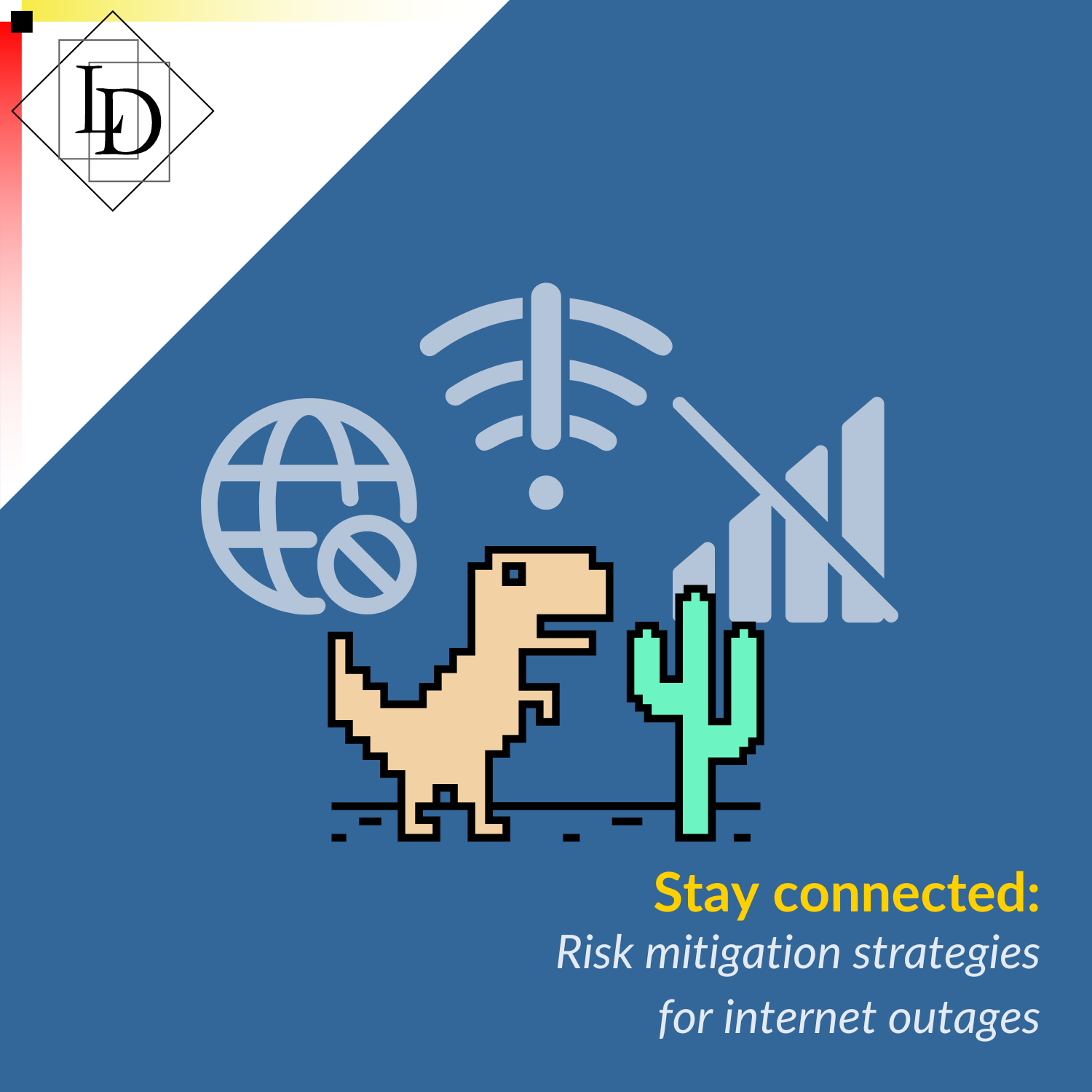
Stay connected: internet outages and how to combat them.
In today’s fast-paced digital world, a stable internet connection is essential for businesses of all sizes. But what happens when that connection goes down? The effects can be far-reaching. Let’s explore some common causes of internet service disruptions, their impacts on businesses, and how companies can protect themselves.
One frequent culprit behind internet service loss is hardware failure. Whether it’s a router or modem malfunctioning, network hardware in a computer failing, or even worn or damaged cabling, your operations can come to a grinding halt. Investing in high-quality hardware, backup hardware, and scheduling regular maintenance and firmware updates for your equipment can prevent many of these issues.
Issues with your internet service provider (ISP) can also disrupt connectivity. Network congestion during peak hours can slow down service, while ISP outages or routing problems can leave you disconnected. To mitigate these risks, businesses should consider having redundant internet connections. Engaging multiple ISPs ensures that if one fails, the other can take over, keeping your business online without a hitch. Consider using a wireless connection for the backup using 4G or 5G to reduce reliance on physical infrastructure at your location.
Software problems are another common issue. Firmware bugs in network devices and configuration errors in network settings or security software can cause connectivity issues. The best defence is to use network monitoring tools that can detect and address software problems before they escalate. Regularly updating and patching your software also helps in maintaining a stable connection.
Physical damage can also cause internet service loss. Natural disasters like floods, earthquakes, and storms can destroy infrastructure, and even nearby construction work can accidentally sever cables. To prepare for such events, having a disaster recovery and business continuity plan is essential. This includes ensuring that critical data is backed up and having a clear plan to restore operations quickly.
Power outages are another significant risk. Local power failures or wider blackouts can disable network equipment and impact ISP infrastructure. Installing uninterruptible power supplies (UPS) to keep critical network equipment running during outages and considering backup generators for longer power disruptions can keep your business operational.
The impact of losing internet service on a business can be severe. Productivity drops when employees can’t access essential online tools or communicate via email, leading to financial losses, especially for e-commerce or cloud-service reliant businesses. Repeated connectivity issues can damage customer trust and your business’s reputation. The solution is to develop and regularly update a disaster recovery and business continuity plan, conducting drills to ensure preparedness. Additionally, negotiating robust service level agreements (SLAs) with your ISPs can provide uptime guarantees and remedies for prolonged outages, offering some recourse when things go wrong.
Understanding the causes of internet service disruptions and implementing comprehensive mitigation strategies can help minimize downtime. Investing in reliable infrastructure, preparing for potential threats, and ensuring continuity through redundant systems are essential steps in managing the risks associated with internet connectivity. By taking these proactive measures, businesses can maintain productivity, protect their reputations, and keep their operations running smoothly.